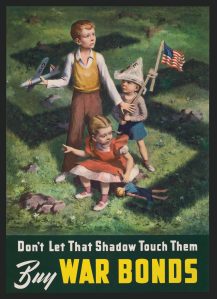I have some questions regarding “Slavery” that I would like to know more about.
What were the concerns about banning slavery? Why did they want to ban it? Also why did they want to allow slavery (other than labor)?
Have a wonderful day.
Sincerely Mariam
???
Dear Mariam,
Slavery originated from two sources: the exploitation of free labor and the belief in the “otherness” of fellow human beings of another race, religion, nationality or even tribal group. American Indians enslaved captives taken from rival tribes and the English used Irish slaves in their Caribbean plantations. In communist nations, most notably the Soviet Union under Joseph Stalin, political prisoners did slave labor in the gulags. In Nazi Germany, some races, most notably Slavic Russians, were marked for permanent slave labor, while others, such as Jews, Poles and Gypsies, were intentionally put to work with reduced food and medical care, deliberately calculated to literally work them to death until they were completely exterminated.
Red Amazon ants (genus Polyergus) are known to raid black ant nests for eggs and breed them from birth to do the “heavy lifting” in their own nests. The only practitioners of slavery among their own species, however, are Homo sapiens. Slavery need not be permanent—throughout history slaves in Roman and Islamic cultures often attained free status. Western nations came to be less flexible in the course of the 17th and 18th centuries, a major economic factor being the growth of cotton and tobacco farming, which is spread out and labor-intensive, but requires quick harvesting before rot sets in (until machines took the place of labor). The other economic drawback to ending slavery was competition for low-paying jobs, which often led to race riots from New Orleans to New York between black American freemen and incoming Irish immigrants in the antebellum years.
Why Western nations came to abandon slavery might be explained by the growing rediscovery that one human depriving freedom of choice from another, for any reason, was morally wrong. The most prominent firebrand in that cause was William Wilberforce, who served in the British Parliament from 1784 through 1825, and who after becoming an Evangelical Christian in 1785, became a staunch abolitionist after 1787. He devoted much of his career thereafter to ending the slave trade, leading to the Slave Trade Act of 1807. One month after his death on July 29, 1833, his efforts bore their ultimate fruit with the passing of the Slave Abolition Act of 1833, which set the standard for slavery’s eventual end throughout the Western world. One of the reasons the United States was a latecomer with the 13th Amendment in 1865 was the widespread claim that blacks lacked the intellectual ability to live with free choice—a racist rationalization to which they had already repeatedly put the lie to in other countries, and to which black Americans have repeatedly put the lie to ever since.
By the way, if Wilberforce seems like too recent a moral voice against slavery, might I also recommend that you go back a bit farther and read the section in your Bible called “Exodus”? The concept of freedom over slavery goes back at least that far. Sadly, it also continues in certain parts of the world—recent examples including the so-called Islamic State and Boko Haram.
Sincerely,

Jon Guttman
Research Director
World History
historynet.go-vip.net
More Questions at Ask Mr. History
Don’t miss the next Ask Mr. History question! To receive notification whenever any new item is published on HistoryNet, just scroll down the column on the right and sign up for our RSS feed.




